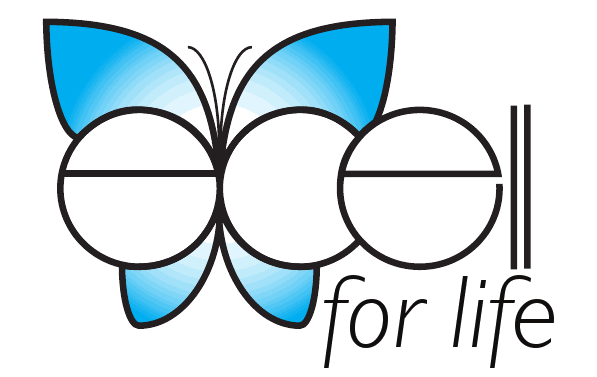Be Ready & Beware of the Common Cold!
The average occurrence of the common cold in preschool children is 5-7 episodes/year, decreases to 2-3/year in adulthood, and lasts about 7-10 days. These are caused by viruses transmitted mostly by hand contact and can live on hands for up to 2 hours – making hand washing vital! I am shown in our new Excell waiting room holding our excellent well absorbed supplements to help prevent and fight off colds and the Neil Med saline irrigation that I use daily. I also am holding 7 plastic cups that I fill every Sunday so I remember to take my vitamins & supplements every day – it is easy, I leave them where I eat breakfast, and I do not have to open several bottles every day!
Antibiotics are not used to treat the common cold, because they cannot kill viruses and taken early do not prevent bacterial infections which only occasionally result from the common cold. They may be needed after about 10 days if persistent signs of yellow or green drainage and fatigue and sinus pain, if symptoms worsen within 10 days of initial improvement, or if pain develops in your ear. (Certainly strep throat is bacterial and requires antibiotics right away. Strep throats usually present with only a sore throat and fever, and often fatigue and gland swelling. Rarely is it accompanied by any nasal or chest symptoms.)
Prevention of Common Colds
Exercise & Proper Water Intake – moderate intensity exercise over one year has been shown to decrease colds, and staying well hydrated with plain water flushes out toxins.
Sleep & Decrease Stress – our resistance to infection goes down with stress and lack of sleep.
Vitamin C – 500 – 4000mg daily can help in preventing colds for some people.
Vitamin D – 1000-2000iu extra/day or doubling your usual dose can boost your immune system to help prevent colds for 1-2 weeks around exposures, and more studies will likely come out soon showing maybe even higher doses for about a week around cold exposure can help.
Zinc – 25 to 50mg daily around exposure.
Probiotics – the good healthy bacteria in our GI system can help resist colds; and remember that 70% of our immune system is in our gut – so we must eat healthy and be kind to our GI system.
Vitamin E – 200iu/day has been shown to help in some people.
Echinacea and Elderberry Tonic – may help in decreasing colds.
Don’t smoke, drink excessive alcohol (no more than one glass/day), or drink pop or excessive caffeine.
Treatment – symptomatic treatment is the mainstay for common colds !
Nasal Saline Irrigation (such as Neil Med products which I use daily, and available in our office and at drugstores): Washing the nasal cavities with saline often gives immediate great relief and reduces nasal drainage/congestion/pressure, removes secretions, and rinses away allergens and irritants and can be used daily (as I do because of recurrent sinus infections in the past and allergies) or as needed, and multiple times daily. They can be used immediately prior to using other nasal medicines so the nose is freshly cleaned before using the medicines. I feel the bottle wash give the best pressure to relieve symptoms, followed by the nettipots and lastly sprays. Even my 8 year old requests this first line for significant nasal cold symptoms!
Antihistamines – These can alleviate runny nose and sneezing, but also can cause dryness and sometimes sedation. OTC medicines are Claritin (non sedating), Allegra, Zyrtec (occasionally sedating), and Benedryl (always sedating but good at bedtime!). Rx ones are Clarinex and XYZall.
Decongestants – Pseudoephedrine (Sudafed) and phenyephrine can decrease nasal congestion. Topical nasal spray Afrin can be very effectively used for several days (but not longer than 1 week at a time or nasal dependence can happen).
Expectorants – Mucinex (guafenesin) can in some people thin secretions and decrease cough. Antitussives – Cough suppressants with dextromethorphan (Delsym, Robitussin DM) or codeine/hydrocodone are of variable help for coughs.
Nasal Sprays
Intal – can improve cold symptoms
Atrovent – can help runny nose and sneezing
Steroid nose sprays (generic Flonase, brands Nasacort, Nasonex, Veramyst, Omnaris, Rhinocort) – these have more proven benefit for allergic rhinitis
Zinc sprays or lozenges – have minor benefits for cold symptoms, and rarely the nose sprays can make a person lose their sense of smell.
Echinacea – has minor benefits in treating common colds in most people.
Antibiotics for Sinusitis and Ear Infections – best not to start unless the symptoms are not improving after 10-14 days or if significant ear pain
Amoxicillin
Bactrim (trimethoprim/sulfamethoxisole)
Macrolides – zpac, e-mycin, biaxin
Cephalosporins – Keflex, Ceftin, Omnicef and others
Doxycycline
Augmentin (amoxicillin and clavulinic acid)
Avelox or Levaquin
Remember to take the time to take your supplements, do prevention measures, and especially hand washing. Instruct and model for your children!
My prayers for excellent health for you and your family!
Dr. Lisa

